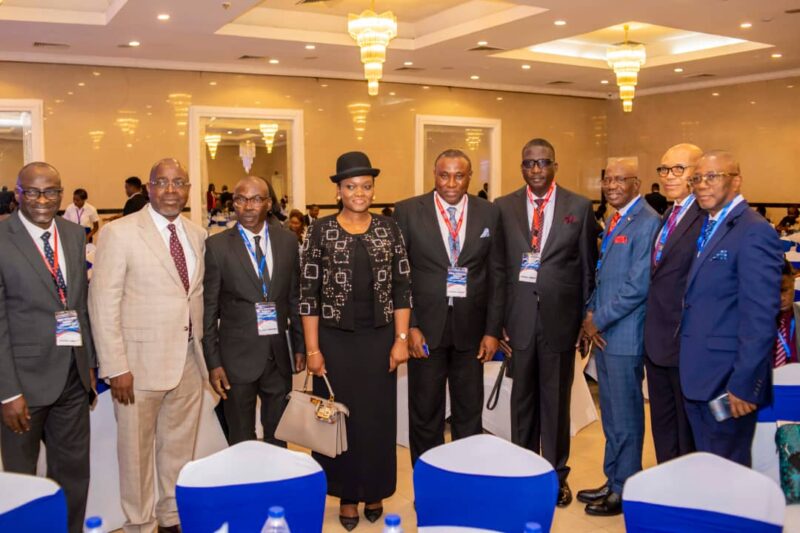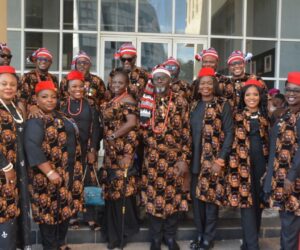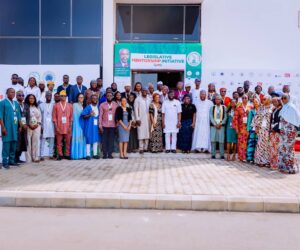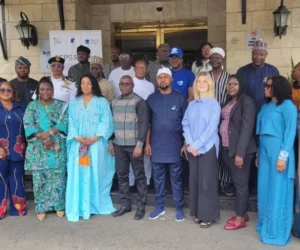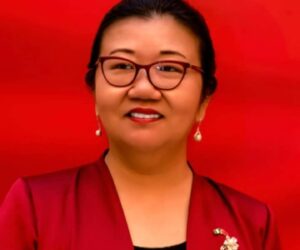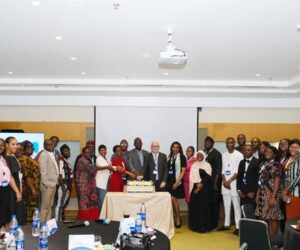By Rukayat Moisemhe
A robust and responsive insolvency ecosystem requires incorporating all stakeholders and will improve Nigeria’s corporate rescue framework and support business recovery and commercial justice.
Judges and insolvency experts made the assertion at the 2025 Business Recovery and Insolvency Practitioners Association of Nigeria (BRIPAN) Conference on Thursday in Lagos.
The event had the theme: “Deepening Insolvency Tools for Resolving Commercial and Financial Challenges of Businesses”.
Justice John T. Tsoho, Chief Judge of the Federal High Court, said that deepening insolvency tools, strengthening regulation, and ensuring ethical and professional practices would help ro resolve Nigeria’s economic and business challenges.
He said that insolvency practitioners, regulatory bodies and the judiciary had fundamental roles to play in the quest for restructuring insolvency tools and proceedings relating to insolvency.
Tsoho said that areas of insolvency to address included limitations and inadequacy in legal framework, limited corporate rescue mechanisms, and necessity for post appointment assesment.
He said that addressing the issues would help insolvency practitioners in achieving effective performance and adopting appropriate tools for resolving chronic indebtedness and insolvency complications.
Tsoho said that while insolvency and its tools might have been abused, the judiciary must play its part as an unbiased umpire.
“The court has been playing pivotal roles in checkmating cases and instances of abuse to which the basic tools of insolvency (such as administration, receivership, petition) have been put.
“Aside these few cases of anomalies and irregularities, lawyers as insolvency practitioners have demonstrated and recorded appreciable good practice and high sense of responsibility in handling insolvency matters.
“The role of BRIPAN is critical as a stakeholder in insolvency practice.
“Continuous assessment of the practice and activities of insolvency practitioners is a welcome development to,” he said.
Mrs Victoria Nwoye, Justice of the Court of Appeal, said the transformative shift in Nigeria’s corporate insolvency landscape by the Companies and Allied Matters Act of 2020 was a major departure from the previous liquidation-heavy regime.
Nwoye, however, noted that across many jurisdictions, insolvency regimes remained underdeveloped, overly punitive or inaccessible to the many businesses that needed them most.
She noted that in spite of the innovations, the practical application of the provisions had been uneven.
According to her, many stakeholders including judges, lawyers, insolvency practitioners, and regulators were still navigating the contours of the new tools.
“Judges, for instance, are the ultimate interpreters of statutory provisions.
“Their understanding of the intent and mechanics of tools such as Company Voluntary Arrangements (CVAs) and administrations and schemes of arrangement will shape how these tools are applied in practice.
“There is no gainsaying that a well-informed judiciary ensures uniform application of insolvency laws across jurisdictions, and modern insolvency frameworks rely on timely judicial intervention.
“We therefore need to deepen the tools of insolvency, which will incorporate all players to build a more robust and responsive insolvency ecosystem.
“We must pursue reforms that are bold, inclusive and forward-looking,” she said.
She added the Nigeria must begin to imagine a business environment where failure would not be fatal, creditors would recover value through collaboration, and insolvency would not be a stigma but a second chance.
The President of BRIPAN, Mr Chimezie Ihekweazu, said the event brought together regulators, practitioners, judges, policymakers, financial experts, and business leaders to advance insolvency and business recovery practices.
Ihekweazu, also a Senior Advocate of Nigeria (SAN), said that globally, businesses were grappling with dynamic economic pressures and geo-political uncertainties.
He said that since Nigeria was not immune to the challenges, it had become imperative to sharpen and deepen tools for business rescue, debt restructuring and sustainable recovery.
“As we embark on this year’s conference, let us do so with a commitment to transform challenges into opportunities, empower businesses to thrive, and strengthen our economy.
“In doing this, we must show not only good character and strong ethical values, but must always lead with integrity, be purposeful in service and have respect for one another,” he said.
Mr Albert Folorunsho, Vice President, BRIPAN, said that insolvency law and practice presented a recourse to global challenges brought by economic shifts, regulatory reforms and financial uncertainties.
Folorunsho said that the world was at the crossroads of economic recovery and business sustainability, adding that insolvency, contrary to its perception as a last resort, had become a lifeline.
He hoped that the event would engage participants on the use of insolvency tools to enforce arbitration awards, new carve-outs under the Investment and Securities Act of 2025 and their implications.
He lauded the judiciary for its role in interpreting, applying and strengthening insolvency law, saying its commitment would ensure that insolvency evolved to a credible instrument for business rescue and commercial justice. (NAN)(www.nannews.ng)
Edited by Ijeoma Popoola

